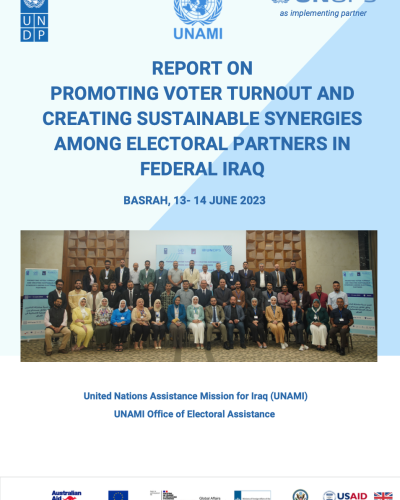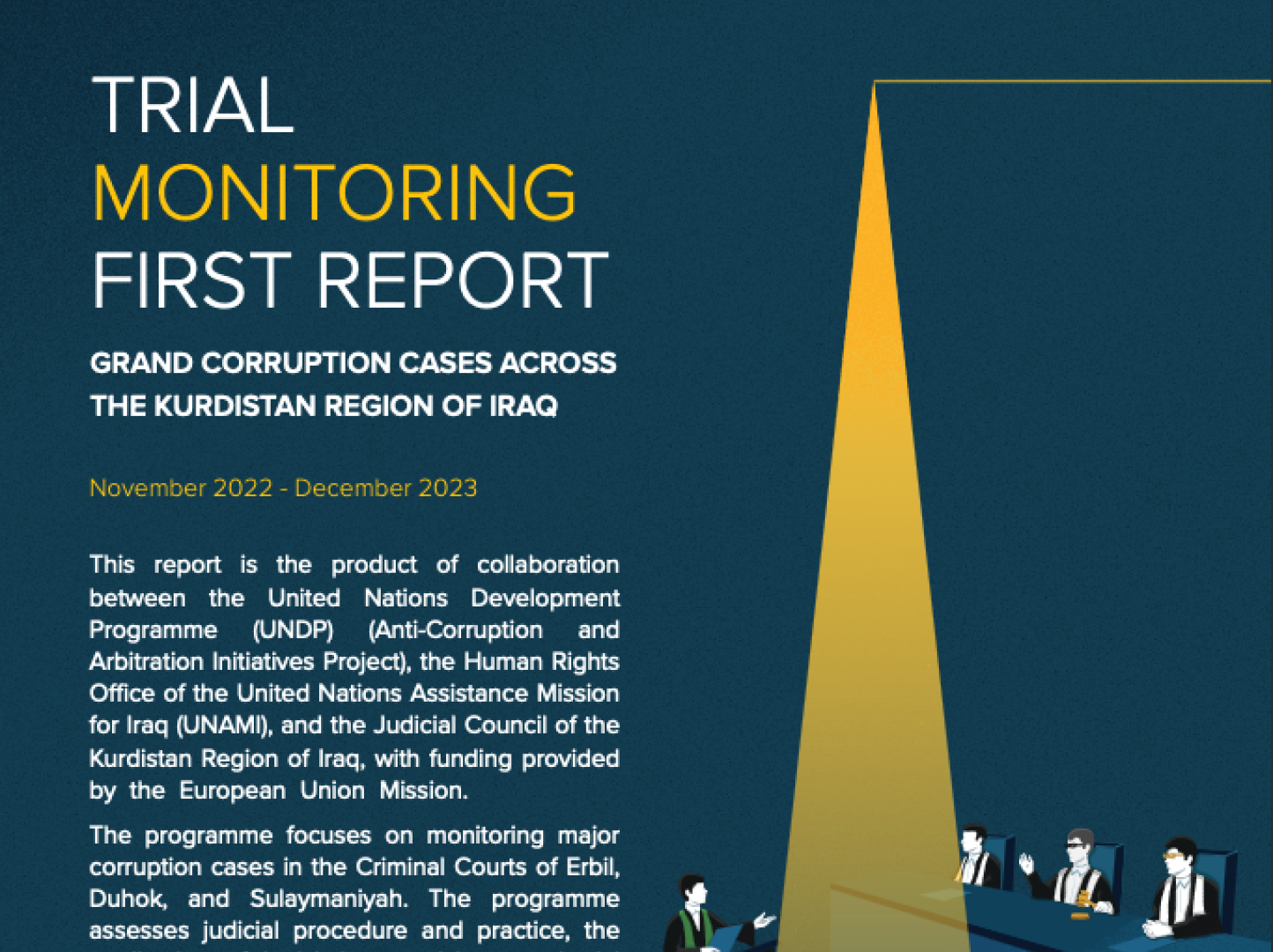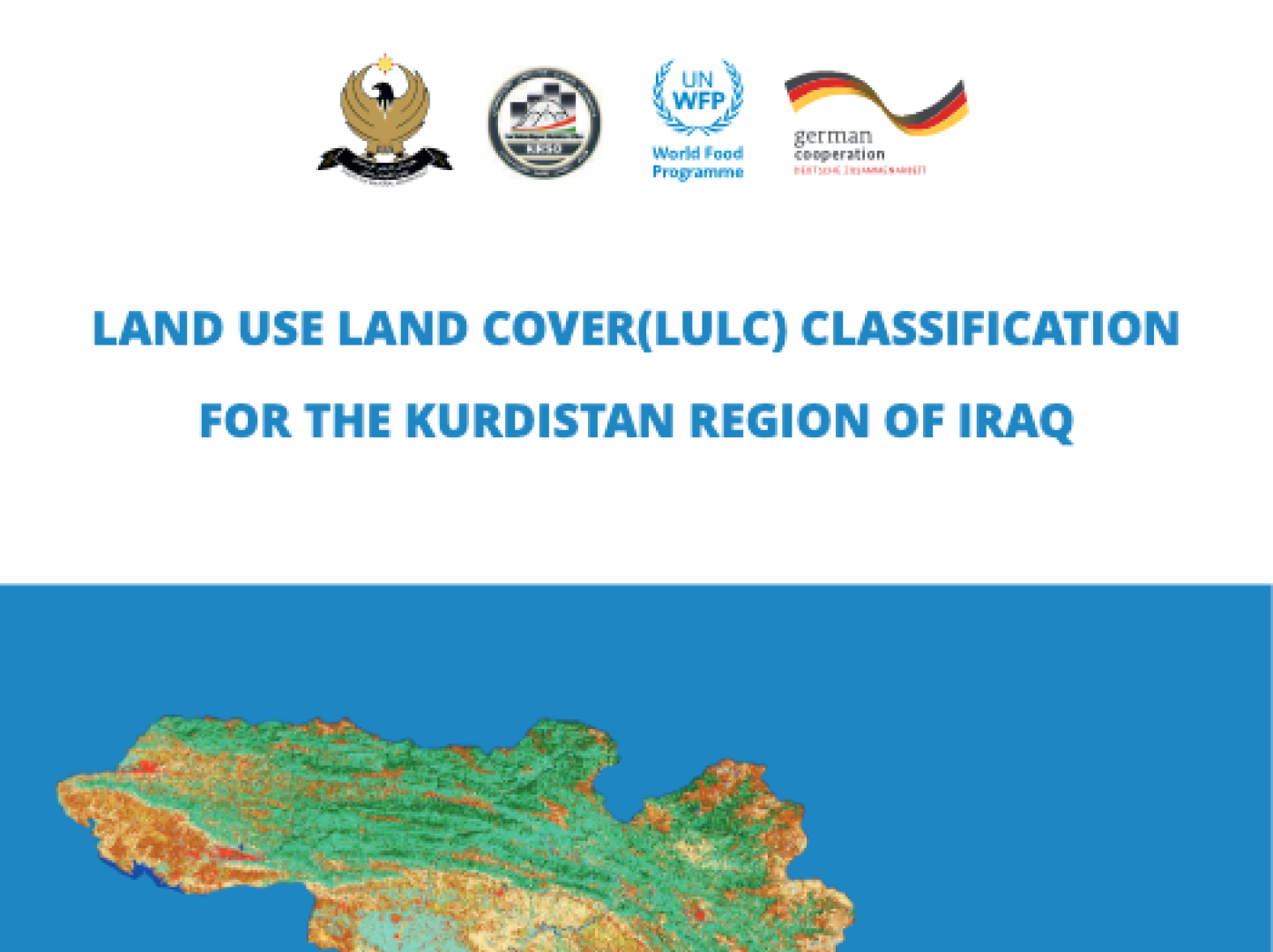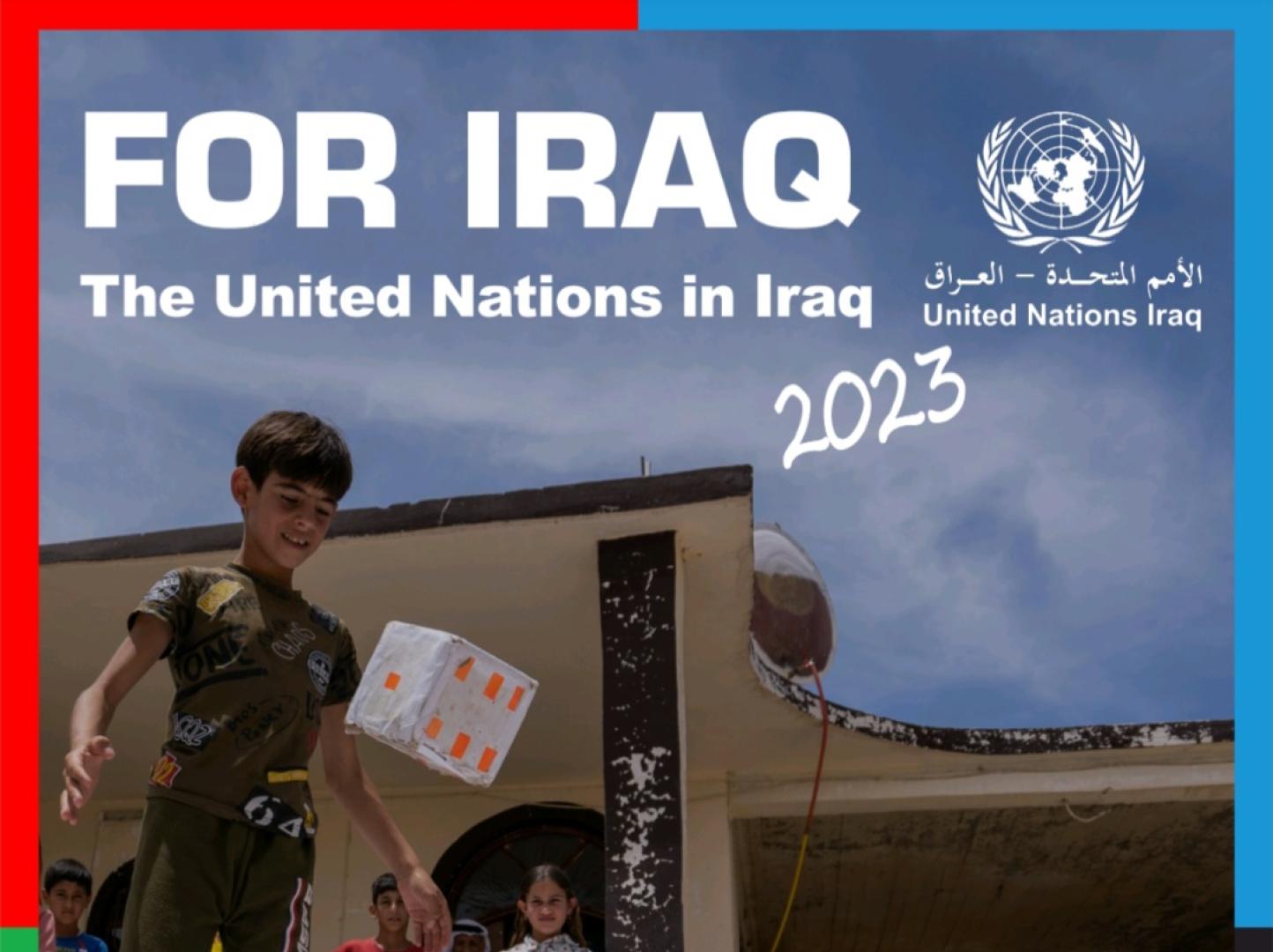Report on promoting voter turnout and creating sustainable synergies among electoral partners in federal Iraq

INTRODUCTION
Since its transition to democracy in 2003, Iraq has conducted numerous elections. Despite this, issues both political and technical have caused a downturn in voter participation, with many choosing to abstain from voting.
In the 2021 elections, even though only 42% of voters participated, the Independent High Electoral Commission (IHEC) received commendation from electoral stakeholders for the transparency and integrity of the process. However, the subsequent delay in government formation diluted this success and adversely affected public opinion about the electoral institution and process.
In response to these challenges, the United Nations Assistance Mission in Iraq (UNAMI) Office of Electoral Assistance (OEA), with operational support from UNOPS, initiated a series of workshops. The primary goals of these workshops are to maintain the institutional independence of IHEC and to create a space for dialogue and collaboration between IHEC and Civil Society Organizations (CSOs), which would allow them to support IHEC in promoting awareness of democratic processes that truly represent the people's interests.
These dialogues present significant opportunities for both IHEC and the CSOs. IHEC can share its strategies, plans, and challenges experienced in past elections and lay out its expectations for CSOs in promoting voter education. On the other hand, CSOs have the opportunity to express their concerns and those of the voters while seeking ways to enhance IHEC's voter education efforts.
After the first workshop held in Baghdad from April 26-27 that covered the central region and the second workshop held in Erbil May 29 - 30 covering the northen region of Iraq. The third workshop was held for enhancing the coordination between the IHEC and CSOs, to further promote effective voter education, civic awareness, and increase voter turnout. Participants from both sides exchanged their experiences, discussed the challenges and future collaboration strategies. Through discussions, participants emphasized achievements in the previous elections and that it should serve as a benchmark along with proposing recommendations for IHEC's future improvements. This report has been prepared to highlight the key discussions that took place during the workshop.




